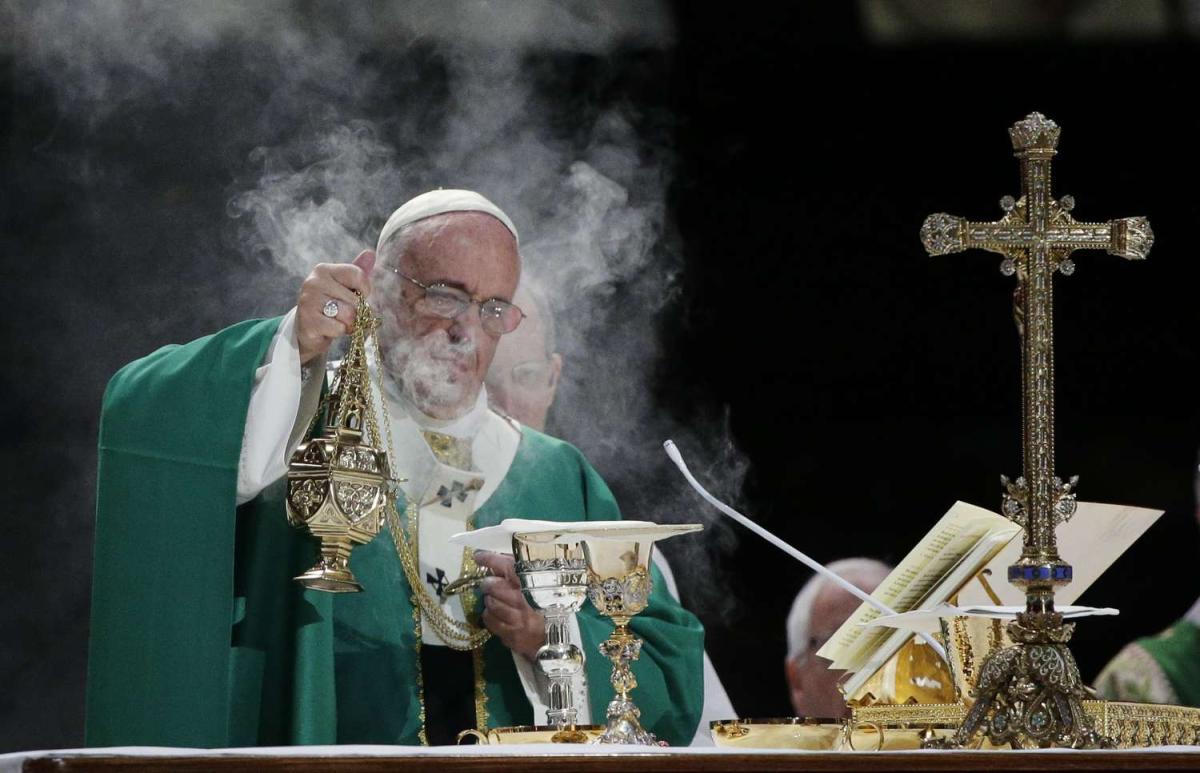Passion for one’s own faith is a wonderful thing, but it can also become a trap – the closing of the mind to wisdom found in other faiths. For me, it’s important to keep the outer boundaries of faith permeable, because there is no way that sincere seekers across the globe are ignored by God, whatever name they call Him or Her. Their prayers will be answered, their sincere desire for divine connection rewarded, and I do not want to miss out on their wisdom.
Recently, I was asked to contribute a chapter to Patheos and Quoir Publishing’s new book, Sitting in the Shade of Another Tree – a beautiful title for a brave book, in which people of faith write about lessons learned from a person or tradition of another religion/spirituality. Each chapter is written by a different author, and having met some of these fine people, I can say they are fascinating, deep, and sincere. My chapter is a reflection on the beauty of Sufi Mysticism and how its lessons dovetail with and even enhance some of the most precious learned from my Christian faith.
I’ll give you an example, taken from my chapter, which focuses on the poems of Hafiz of Shiraz, a 14th century Sufi Mystic whose writings are loved the world over.
If God Invited You to a Party
If God
Invited you to a party
And said,
“Everyone
In the ballroom tonight
Will be my special
Guest,”
How would you treat them
When you
Arrived?
Indeed, indeed!
And Hafiz knows
There is no one in this world
Who
Is not upon
His Jewelled Dance
Floor
For me, this poem communicates the immense value God places on each and every human being, no matter the state of their lives. There are two pivotal moments in the text: After setting up the premise of being personally invited to a party by God, and that every other person in attendance is also his special guest, Hafiz asks a telling question:
How would you then treat them when you arrived?
As so often happens when reading Hafiz, the question arrests me, eliciting a deep personal enquiry, to which my honest response is that I would have to treat the other special guests as equals. If we are all God’s special, invited guests then we are all equal before God, whether saint or sinner, success or failure, rich or poor, or any other division we might be tempted to identify as important. If we, together, are God’s special guests, we stand on the most elevated and yet entirely level playing field. There’s no need or room for pride and no reason to insist on a place of honour, because honour has already been abundantly given to every person.
True, dignified equality is such a rare commodity, but Hafiz’ simple premise can only lead to one conclusion – that in the light of God’s grace, we ought to treat each other equally. It is no wonder that the poet, at least suspecting the conclusions readers will have reached, felt inspired to pause on that revelation:
Indeed, indeed!
The second pivotal moment builds on the first:
There is no one in this world who is not upon His Jewelled Dance Floor.
What a thought! We live in societies divided by politics, race, sexuality, gender, financial success, class, and a myriad of other points of contention and difference. And yet, if we pause on the singular idea that there is nobody unwelcome at God’s party – indeed, we are all already there – these divisions dissipate like morning mist. There is no-one God is uninterested in, nobody who doesn’t have his full, mindful attention, no person unworthy of love, no villain beyond the reach of forgiveness, no isolated individual unfit for inclusion.
I hope each reader will grasp that they stand upon God’s Jewelled Dance Floor as his special, invited guest, along with the amassed members of the human race, each of whom is included, invited, and honoured by God. Even your enemies are thus.
Indeed, indeed!
I’ll share one more poem, which for me speaks of spiritual intimacy with God. If this guy didn’t know God, then neither do I!
The Seed Cracked Open
It used to be
That when I woke in the morning
I could with confidence say,
“What am ‘I’ going to
Do?”
That was before the seed
Cracked open.
Now Hafiz is certain:
There are two of us housed
In this body.
Doing the shopping together in the market and
Tickling each other
While fixing the evening’s food.
Now when I awake
All the internal instruments start to play the same music:
“God, what love-mischief can ‘We’ do
For the world
Today?
For me, this poem resounds with the truth of mystical experience. Every wise person I know is in the process of moving from a defined sense of ‘I’ to an awareness that ‘We’ are all connected and part of a greater, more wonderful whole.
I love Hafiz’ notion of the seed cracking open, after which our sense of ‘I’ expands to become the ‘We’ of each person and God. This comfortably aligns with Christian truths; that our bodies are temples of the Holy Spirit, along with Jesus’ promises of intimacy with the divine. John 14:23
“Whoever loves me will keep my word, and my Father will love him, and we will come to him and make our dwelling with him.”
Hafiz understood the indwelling presence and company of God, including in sweet, companionable terms:
Doing the shopping together in the market and
Tickling each other
While fixing the evening’s food.
Such playful closeness in the most ordinary of things! This reflects my own enjoyment of God’s daily, companionable presence, along with that of many other Christian believers I know. And then comes the mission, the daily quest to love those around us:
“God, what love-mischief can ‘We’ do
For the world
Today?
Wonderful!
Why bother with other religions?
I am a Christian – not a nominal believer, nor just a regular churchgoer – I walk closely with Jesus each and every day. I love the scriptures, enjoy bone-shaking encounters with the Holy Spirit, and am absolutely aiming for the prize (to use Paul’s language). For me, Jesus is the Name above all Names, the Great I Am, the Lamb Who Was Slain, and the Light of the World. So why bother with other religions at all?
Because knowing Jesus doesn’t equate to arrogance or closed-mindedness, and I don’t believe the Church has got anywhere near everything right. When activists pushed for abolition in the 19th century, many believers fought to hold onto their slaves and strained every sinew to counter the righteous movement, quoting the Bible as their justification. When women demanded the right to vote, the Church was in the vanguard of the enemy camp. To this day, the Church is often the last and most reluctant party to embrace inclusion. On what basis should I assume our current view of the world, and even our own theology, is close to what it ought to be? I am always seeking, and the seeker doesn’t close the door on wisdom.
I choose to remain curious, and am convinced that God hears every sincere prayer regardless of the religion of the one praying. When Hafiz writes of the Friend, the Beloved, I know in my bones he was communing with the same Lord I worship. Reading his poetry is like hearing the song of my heart, sung by another, unrestricted by boxy thinking and time-worn phraseology.
In Hafiz’ words, I find authentic, living, intimate expressions of truths and realities also reflected in my own faith. By reading of them in creative, impassioned ways, they become alive to me again, reminding me that God is everywhere, and whirling!
Readers who want to dig into inter-faith dialogue further can purchase Sitting in the Shade of Another Tree here.
Both poems are taken from The Gift: Poems by Hafiz, Penguin Books, copyright Daniel Ladinsky, 1999, and used with the author’s permission.”














